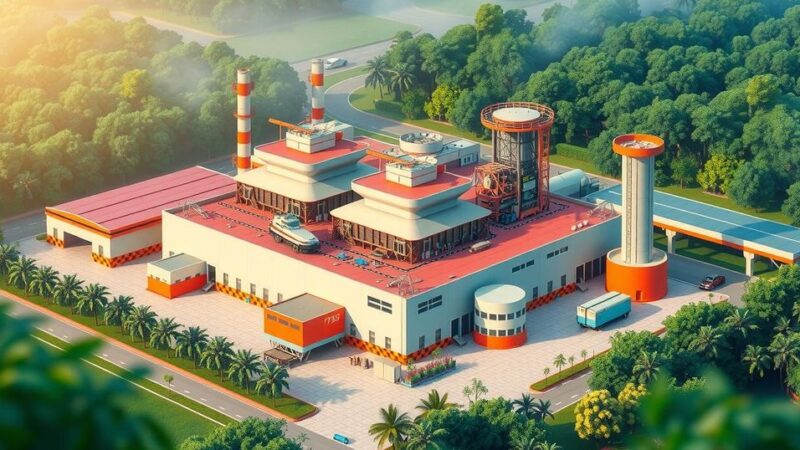Prime Minister Gustavo Adrianzen announced a deregulatory shock aimed at eliminating bureaucratic obstacles to boost economic growth in Peru. He stressed the importance of enhancing productivity and efficiency in public management while urging collaboration from municipalities and Congress. This initiative seeks to streamline licensing for investors and address issues affecting social sectors such as education and health.
On Monday, Prime Minister Gustavo Adrianzen announced that the government’s deregulatory shock initiative aims to eliminate bureaucratic obstacles and promote economic growth. This strategy is designed to enhance productivity, competitiveness, and efficiency in public management.
Adrianzen emphasized the importance of sustaining economic growth, noting, “We must continue driving economic growth because we have the potential to grow at even higher rates.” These initiatives are intended to facilitate this objective through initial reforms led by the Ministry of Economy and Finance (MEF), with a goal to consolidate these efforts by July, followed by broader reforms engaging all levels of government.
Despite some resistance from certain sectors within the state, Adrianzen highlighted the detrimental impact of bureaucracy on national development and reiterated the need to persist in reducing these inefficiencies, particularly within social sectors like health and education. He remarked, “You wouldn’t believe how much is required for someone to invest in education, for example.”
The Prime Minister also pointed out that the deregulatory shock aims to streamline the licensing process for investors, preventing long wait times that impede growth. He remarked, “This measure is a clear response to the need to untangle the bureaucratic web that harms us so much.”
Furthermore, Adrianzen urged municipalities and the Congress of the Republic to collaborate in this effort, indicating that meetings are necessary to encourage their active participation. He acknowledged that some municipalities have exploited bureaucratic delays for revenue generation but affirmed the government’s commitment to create incentives for their involvement in this transformative process.
In conclusion, Prime Minister Gustavo Adrianzen’s announcement regarding the deregulatory shock reflects a comprehensive strategy to eliminate bureaucratic hurdles, boost productivity, and enhance public management efficiency in Peru. By engaging various government levels and addressing the challenges posed by bureaucracy, the initiative seeks to create a more conducive environment for economic growth and investment, particularly in critical sectors such as education and health.
Original Source: andina.pe






